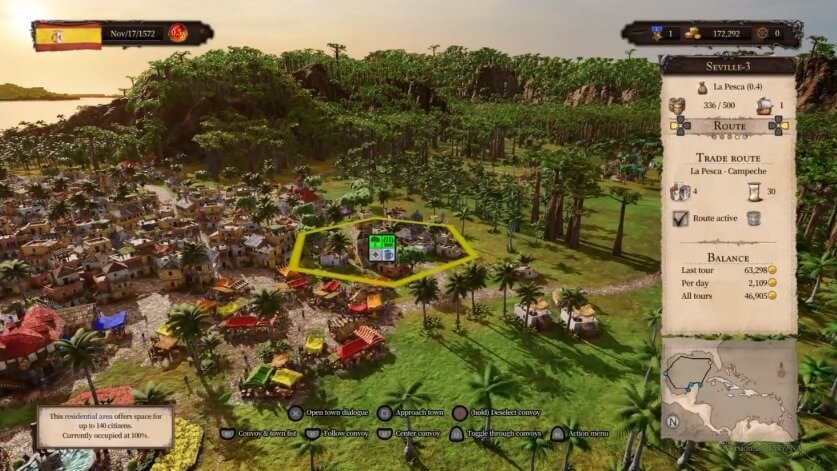

Port Royale 4 does come across as perpetuating a kind of exoticism, and it’s unfortunately inauthentic as a consequence. I do appreciate that it’s an uncomfortable topic and difficult to handle, but simply ignoring that happened and the impact that it had on every economic, political and structural system in the region of the time is not the way to go about it, either. There’s a real eye for detail that has gone into the game, and that’s why it’s fascinating that at no point does the game engage with the nasties of colonialism on any meaningful level.
#DOWNLOAD PORT ROYALE 4 FULL#
It offers full campaigns of all four of the colonial powers, in which you’ll be set an ongoing series of objectives to meet by a certain point in time, as well as a sandbox mode where you can set out and make your fortune on your own initiative.

Port Royale 4 is a gorgeous mix of Ubisoft’s Anno series (as far as city building goes), low-level (but engaging) trading simulator, and a surprisingly nuanced turn-based tactics action for the battles. You get to set up shipping routes for all the good stuff – sugar, tobacco, coffee (especially coffee) – and reap massive profits from being good at the basic principle of “buy low, sell high.” You need to carefully monitor your relationships with each of the four colonial powers. You get to fight pirates (or become a privateer, engaging in piracy for king and country). The developers have done a great job of capturing all the drama and exotic excitement of the Caribbean oceans and start-up townships of the time.

It’s been a long drink since the last one, but I spent many, many hours playing Port Royale 3 on PlayStation 3 and have been looking forward to this new one for quite some time. It is not something that Port Royale 4 offers anything more than the most passing of nods to. The reason I bring it up is that Bolívar’s story, the stories of what happened to the people of those colonies and islands, and what inspired him to rise up to become a Napoleon-like figure, are all very powerful stories about the horrid impact of colonialism, all so some European powers could exploit some of the abundant resources. The histories of the Americas are a blind spot to me precisely because it’s not a topic that’s broached in our common discourse or education system.Īnyway. I’m a fairly well-read guy, and I didn’t even know of Bolívar’s existence until Civilization, for example.

Or at least that’s the case here in Australia. It’s fascinating because while we all know vaguely that the colonial powers of Spain, France, England and the Netherlands were not exactly benign influences in the Caribbean and what is today north South America, Central America and south USA, the depths of what went on isn’t something that we generally think about. I’m reading a book on Simón Bolívar at the moment – his addition to Civilization VI caught my attention, and while I’m reading it slowly as I’ve got a million other things to do, I am finding it fascinating.


 0 kommentar(er)
0 kommentar(er)
